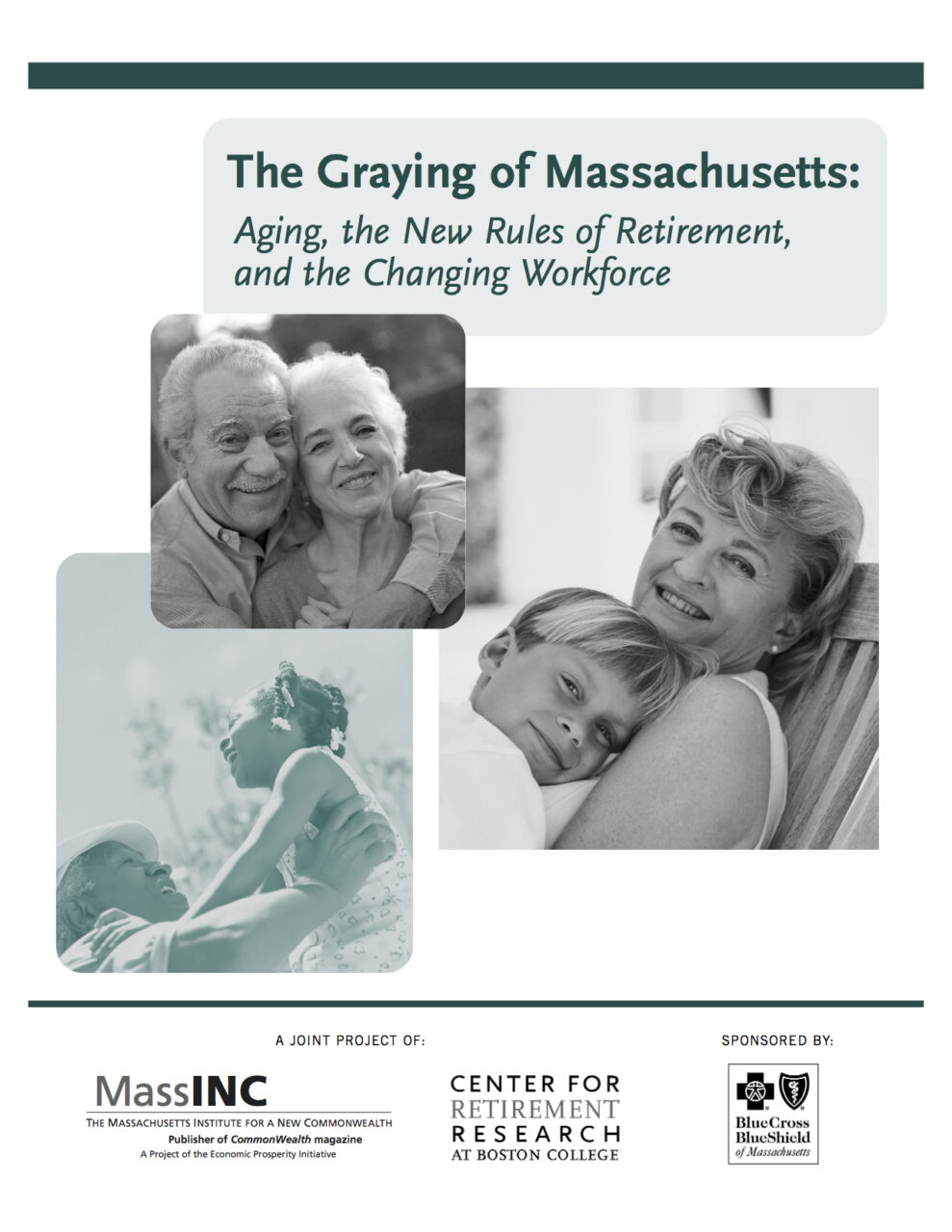Many Massachusetts workers will face a stark choice in the coming years: Retire later or retire with less money. Our findings show that powerful trends are converging at once to alter the retirement landscape: An aging population that has not saved enough must adjust to new Social Security rules that delay full benefits from the current age of 65 to 67 years. In addition, about one-third of full-time Bay State workers lack any form of pension coverage – including 401(k) plans – at their current workplace, and personal savings rates are at their lowest since the Great Depression.
These changes are occurring as many of the state’s 1.87 million Baby Boomers are getting ready to retire over the next five years. The shift to an older population has huge implications for the Massachusetts labor market, as the number of younger workers declines over the next two decades. Older workers may offer a way to stem the impending labor shortages, but a number of challenges must be overcome in order to capitalize on this mutual interest.
